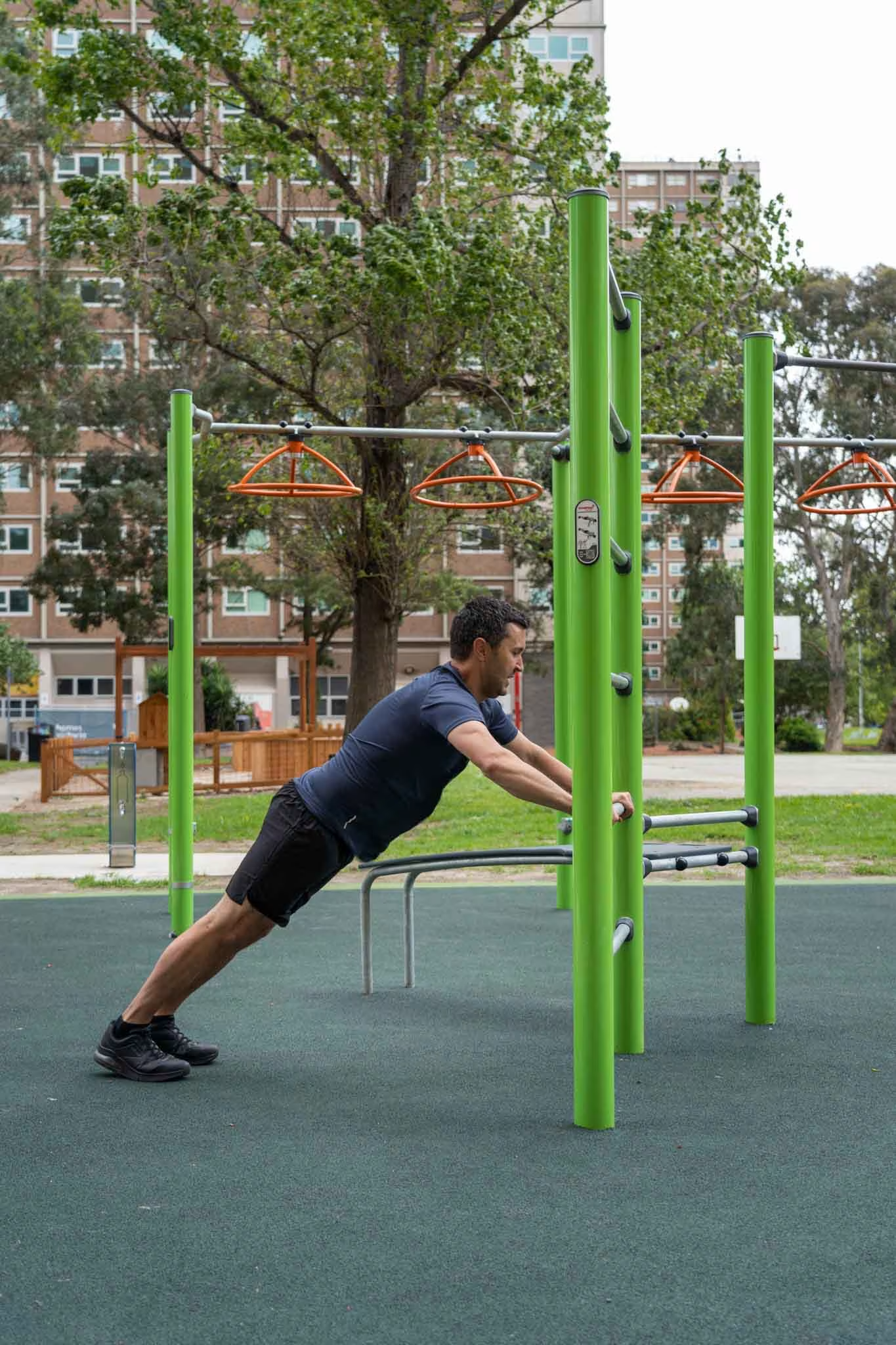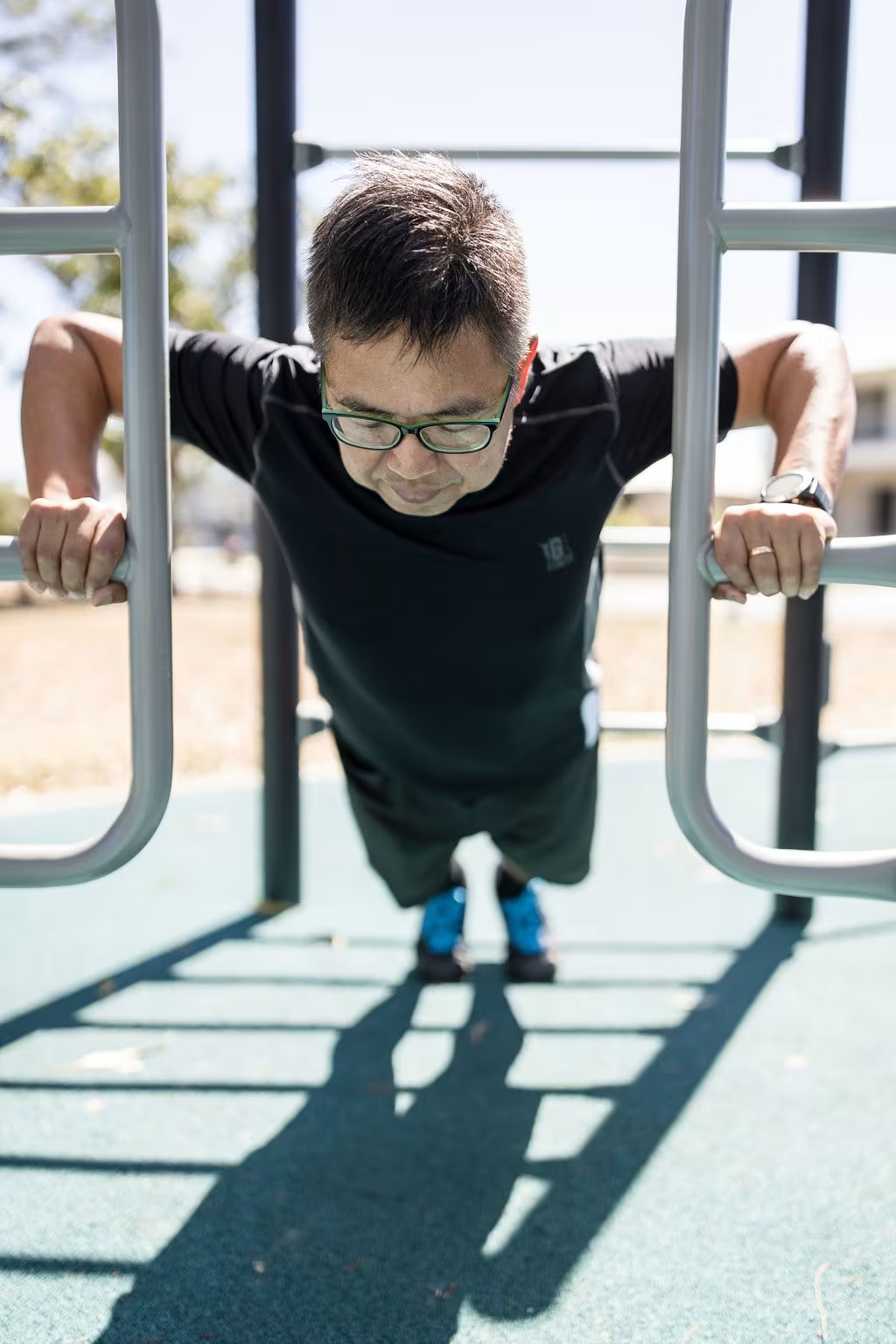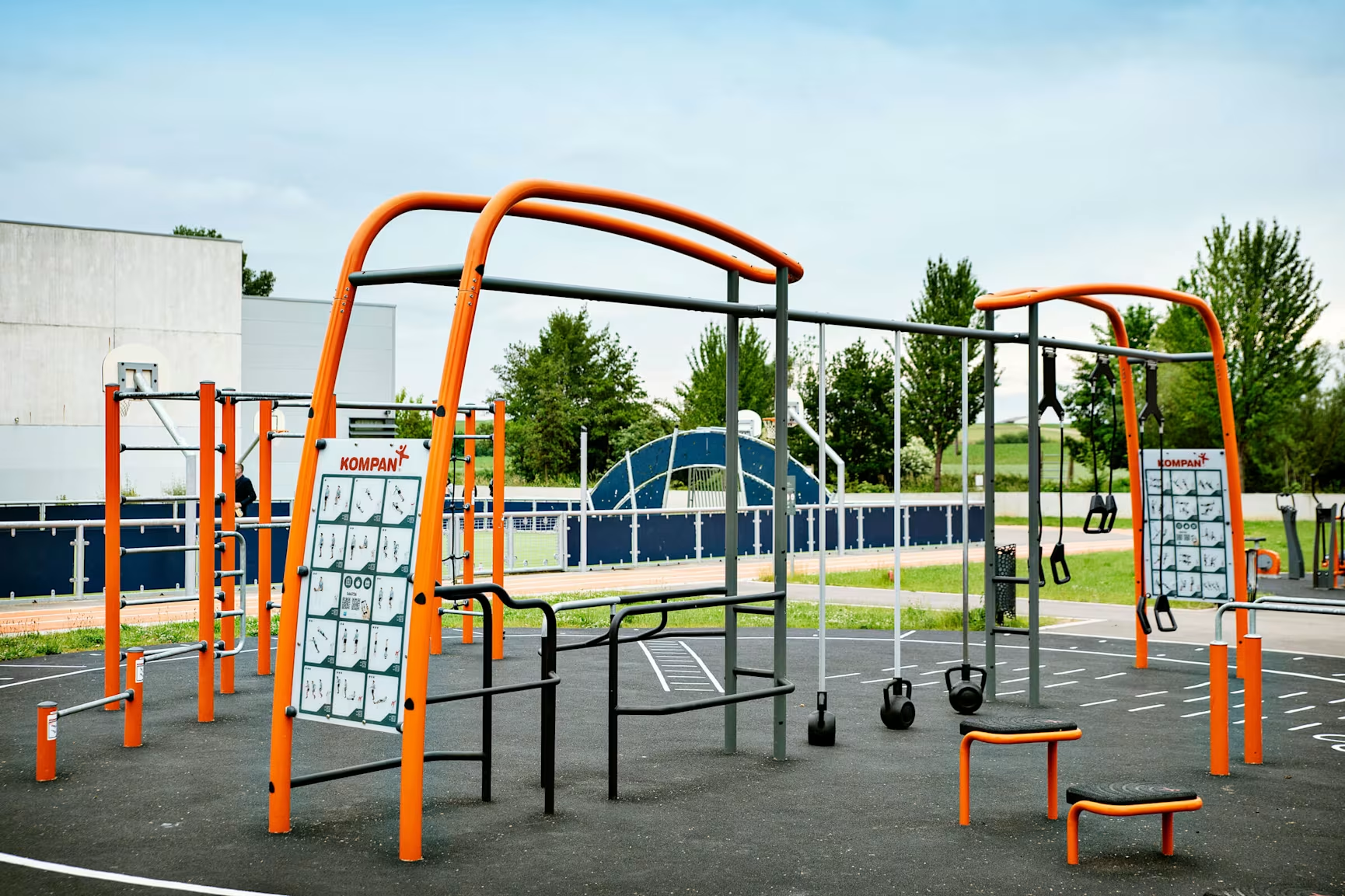OUTDOOR GYM PLANNING
How to build a Calisthenics Park Gym

Key considerstions for building an Outdoor Calisthenics Park
Establishing an outdoor calisthenics gym in your community is a great way to encourage a healthy and active lifestyle, replete with numerous benefits. For a comprehensive list of requirements involved in designing and planning a calisthenics park, follow our step-by-step guide.
Here are seven pivotal steps to follow when designing an outdoor calisthenics park:
Budget and funding
Planning and design
Identifying users and target audience
Site preparation, installation, and surfacing
Calisthenics equipment
Safety measures, landscaping, and signage
Maintenance services
The development of an outdoor calisthenics park necessitates careful planning, with considerations such as users, design, purpose, equipment selection, maintenance plans, and budget allocation. By following this essential step-by-step checklist, communities or municipalities can create a well-thought-out site that caters to the diverse needs of its users.
What is a Calisthenics Park Gym?
Calisthenics workouts utilise the easiest and arguably most effective equipment: your body. Calisthenics is a dynamic exercise style where you build strength, endurance, and overall fitness with minimal equipment and flexibility to be performed anywhere. While bodyweight is the main requirement, equipment can drastically improve efficiency, frequency and quality of workouts, promoting better public health. Installing calisthenics parks can be seen as the most cost-effective way of improving the health and happiness of a whole community.
Step 1
Budget and Funding
Determining the available budget plays a crucial role in shaping the overall design and scale of your project. Devoting time to explore and investigate various funding options can enhance the resources at your disposal. It's advisable to consider funding avenues like grants, sponsorships, or community contributions before finalising your budget. The hinge on multiple factors, including the site's dimensions, the type of equipment chosen, landscaping, pre-installation site preparation, and the inclusion of site amenities. Compliance with Australian standards and regulations, obtaining permits, undergoing inspections, ongoing equipment maintenance, and potential replacements can introduce additional costs to your project.
For a realistic budget and precise estimate, we recommend consulting with your local play & fitness consultant.

Step 2: Design and planning
With your preliminary budget established, the next step involves initiating the planning and design process for your outdoor calisthenics park. During this planning phase, key aspects such as the purpose of your site, target audience, specific requirements, and the available space are carefully outlined. This phase is often closely aligned with the first step, where a well-crafted brief or business plan can attract funding and potential investors. Evaluating your project scope with regard to social, economic, and environmental considerations within the community can further enhance its appeal to potential investors or funding partners.

Step 3: Users and target audience
The next step is dedicating significant time to the planning phase, thoroughly examining the residents of your community and the adjacent areas. A thorough understanding of your target audience and their requirements is crucial for the success of the site.

Step 4: Site preparation, installation and surfacing
Prior to the installation phase, it is important to conduct a thorough site inspection to ready the grounds and identify any concealed obstacles. Performing a subsoil analysis, assessing drainage, and identifying underground obstacles can help alleviate concerns, prevent time delays, and mitigate unnecessary costs.
step 5
Calisthenics equipment
When selecting equipment for your outdoor calisthenics park, prioritise safety features and durability. Consulting with fitness experts, especially those knowledgeable about calisthenics exercises, is crucial for steering your project in the right direction.
Common types of equipment used in Calisthenic park gyms include:
Parallel bars
Overhead ladder
Pull-up station
Dip bench
Sit-up bench
Push-up bars
All are uncomplicated yet provide a comprehensive and highly durable fitness system based on calisthenics. Additionally, we offer all-in-one callisthenics equipment packages – learn more .

Step 6: Safety, landscaping and signage
Ensuring safe equipment is paramount. For safety, it's essential to install signage on the equipment providing clear exercise instructions throughout the park. Carefully planned landscaping enhances the park's appeal and attracts users, as do well-chosen site amenities. Planning surfacing options to and from the area, along with appropriate flooring around the equipment, is crucial. Factors like fall height, inclusivity, accessibility, maintenance, design theme, and material selection should be considered when choosing a suitable surface for callisthenics exercises, which may involve surfacing with impact absorption. .

Step 7: Maintenance services
Upon completion of your outdoor calisthenics park, it's essential to establish a maintenance plan incorporating scheduled inspection visits and regular cleaning and maintenance routines. The KOMPAN maintenance teams worldwide bring extensive experience in after-service. We provide top-notch service and maintenance agreements, ranging from comprehensive, all-inclusive Expert Maintenance agreements to simpler repair agreements. Be mindful of this additional cost consideration.
Frequently Asked Questions
In theory, calisthenics doesn't inherently demand equipment; it can be practiced by anyone at home. However, incorporating equipment can enhance efficiency, enabling more diverse, better quality workouts, ultimately contributing to improved public health. The installation of calisthenics parks can be viewed as a highly cost-effective means of enhancing the health and well-being of an entire community.
You may need HOA approval to get your park built - if so, include statements on increasing value, encouraging healthy habits and enhancing community feeling in your brief.
Want more advice on planning outdoor fitness sites?
Please fill in your contact details and we will get back to you as soon as possible.
Get inspiration from these callisthenic parks around the world.









